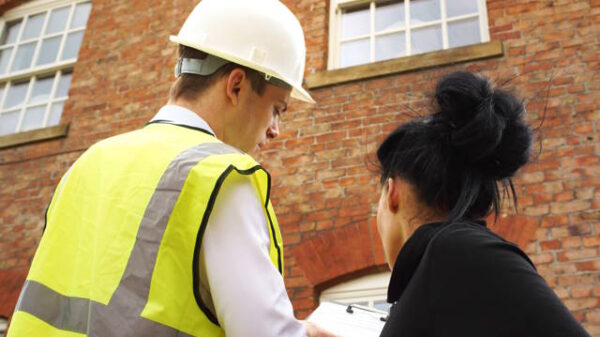Buying a house is a huge decision to make and for many people it’s the most expensive purchase of their lives.
It’s crucial therefore that you make the decision carefully and factor in all your incoming and outgoing funds to ensure you can afford it, not just now but in the long term.
After all, the single most important thing to consider when buying a home is affordability.
Affordability refers to the ability to comfortably afford the ongoing costs associated with owning a home, including mortgage payments, property taxes, insurance, utilities, and maintenance.
When determining affordability, it’s important to consider your current and future financial situation, including your income, debts, and expenses.
Plan for the unexpected
You’ll also need to consider how you’ll continue to afford your home if your financial circumstances change suddenly and unexpectedly.
What would happen if you lost your job? What about an unexpected pregnancy? Could you continue paying the mortgage and bills on a single salary.
These are just some of the key questions you need to ask yourself before buying a house.
The impact of missing mortgage payments
If you buy a home that you can’t afford, you risk falling behind on payments and potentially losing the property through repossession and foreclosure.
Missing mortgage payments can also impact your financial situation in other ways, such as damaging your credit score and restricting your access to things like loans and credit cards as a result.
Additionally, having a mortgage payment that takes up too much of your monthly budget can leave you with limited financial flexibility, making it difficult to cover unexpected expenses or save for future goals.
It’ll also mean you won’t be able to enjoy a social life or hobbies which could have a negative impact on your mental wellbeing as well.
Work with a professional
Therefore, it’s important to work with a financial advisor or lender to determine how much you can afford to spend on a home before taking the plunge.
This includes considering your deposit payment, monthly mortgage payment, and any additional costs, such as property taxes, insurance, and maintenance.
You should also consider your long-term financial goals and make sure that your home purchase fits into your overall financial plan, such as pension contributions and retirement age.
A professional financial adviser will be able to give you an accurate projection of the overall affordability of buying home using cash flow modelling.
How to check if you can afford to buy a home
Here are some steps to help you establish if you can afford to buy a property before signing up for a mortgage:
1. Evaluate your income: Take into consideration your monthly salary, any additional sources of income, and any expected changes in the future.
2. Assess your debts: Make a list of all your current debts, including credit card balances, car loans, student loans, and other payments. This will help you determine what your monthly debt payments are, which will impact your ability to make a mortgage payment.
3. Determine your expenses: Make a budget to see what your monthly expenses are, including food, transportation, entertainment, and other bills. You will want to make sure you have enough money left over each month to make a mortgage payment.
4. Calculate your DTI: Your Debt-to-Income (DTI) ratio is the amount of your monthly debt payments divided by your monthly income. Most lenders prefer a DTI ratio of 43% or lower.
5. Get pre-approved for a mortgage: Working with a lender to get pre-approved for a mortgage can help you determine how much you can afford to borrow and what your monthly payments will be.
6. Consider the costs of home ownership: Don’t forget to factor in the costs of home ownership, including property taxes, insurance, utilities, maintenance, and any other expenses.
7. Plan for the future: Make sure you take into consideration any future expenses or financial goals, such as saving for retirement or having children.
8. All for rainy day expenses: Always be prepared for the unexpected and keep a post of cash ready to cover expenses that crop out of the blue. Consider how you’d afford to replace large household appliances if they break, or pay for an unexpected car repair bill.
Conclusion
Affordability is the single most important factor to consider when buying a home.
Taking the time to carefully evaluate your financial situation and determine what you can afford will help ensure that you make a smart investment that won’t cause financial stress in the future.
It’ll allow you to plan for a comfortable future while being prepared for any unexpected expenses or changes to your financial situation that may crop up along the way.











